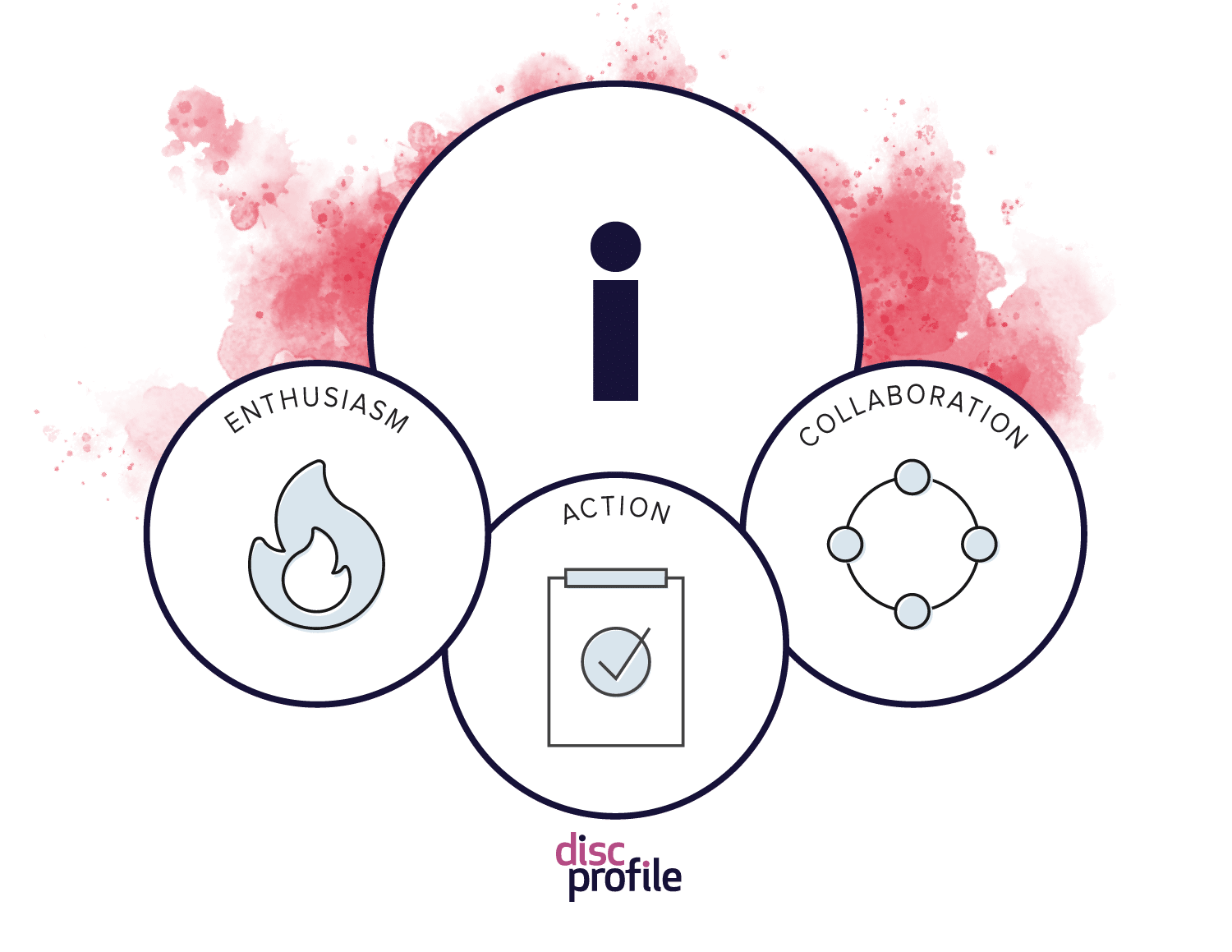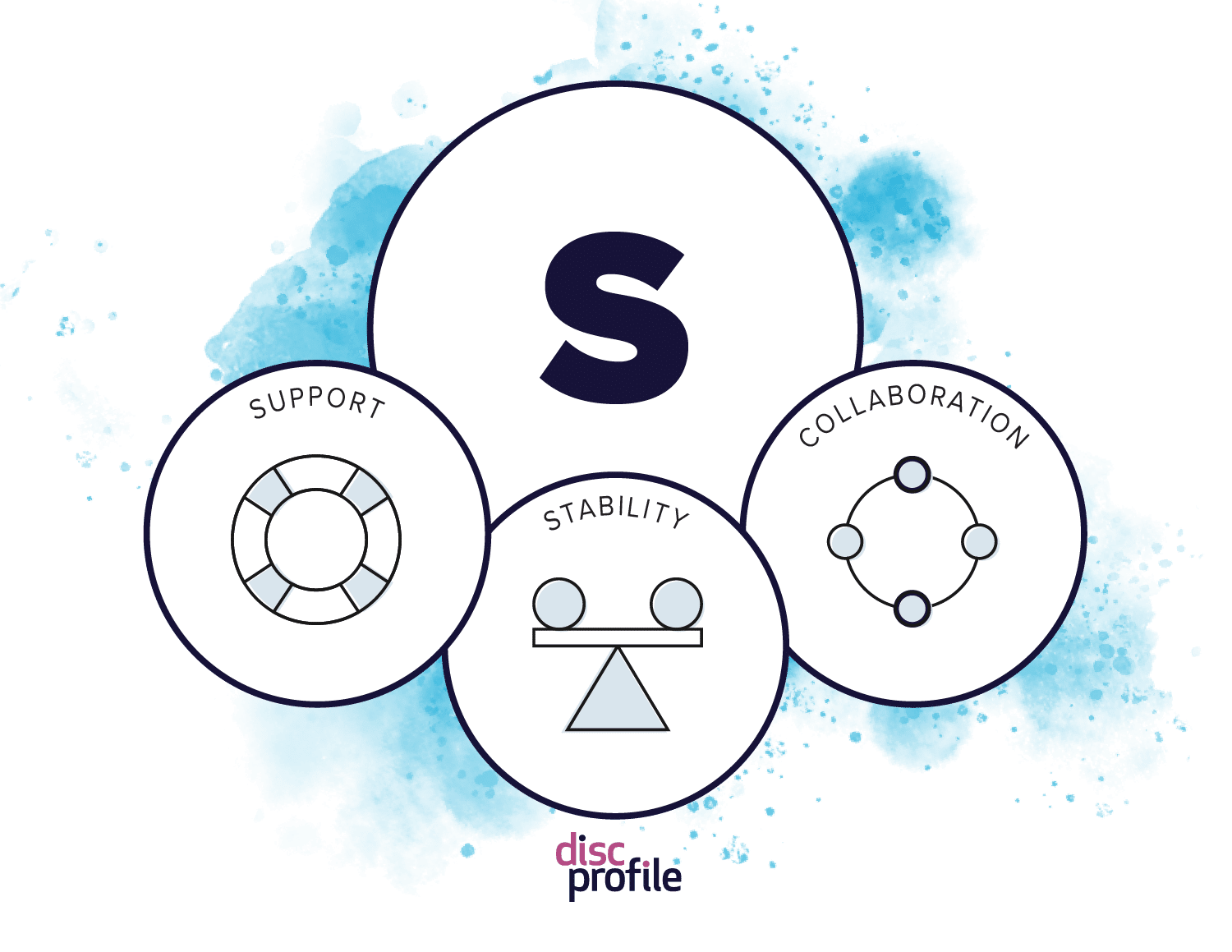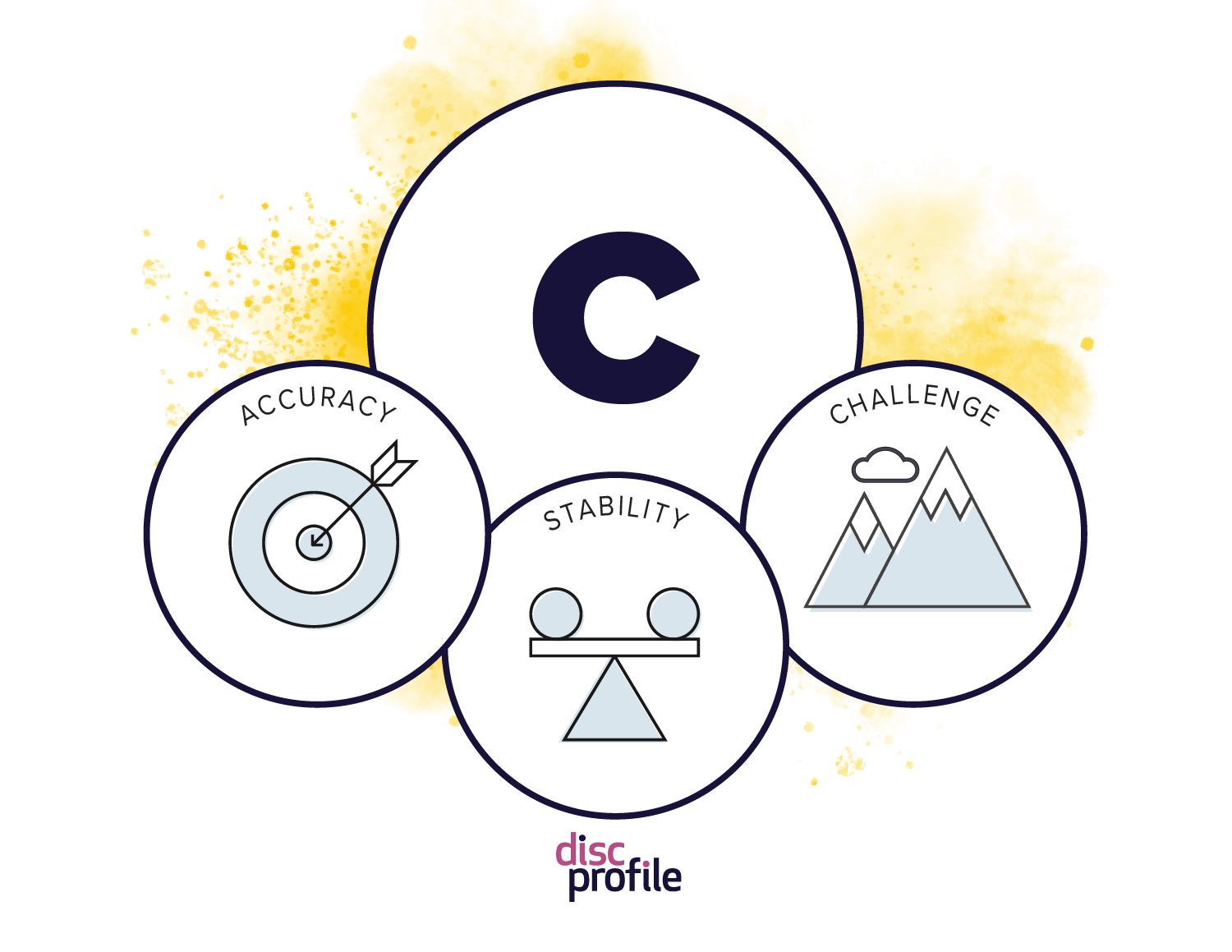Managers are learning that productivity doesn’t have to suffer if some positions are filled by someone working remotely. A team today might include a new father working from home, a colleague from Norway, a member from the home office in Minneapolis, and the rest of the team in Atlanta. Working together in this way presents many challenges. Here we address issues surrounding forming and maintaining good working relationships and keeping communication open and productive.
Remote relationships and DiSC®
Work today is about relationships. Relationships between manager and employees, between staff and customers, among teammates. DiSC can help us develop and maintain those relationships even when we seldom, or never, meet in person. Nevertheless, what we’ve learned about working with a colleague normally only a few feet away from us doesn’t necessarily translate once you can only interact via technology. Managers used to walking around to check on things can’t check in so easily or personally once team members work remotely.
It is possible to be a successful manager from a distance. And there are a lot of resources available to managers online to help them learn to get comfortable with new skills needed. It takes attention and practice.
Managers by DiSC style
Will people work if I’m not there? Will I lose touch with my employees if I’m not physically present? How will I know if my remote workers need additional support? Will we still get results? Will we lose the sense of family we have now?
As a manager, you have a responsibility to set remote staff up for success. Some of that work will be done by interacting with other teams. For example, you’ll need to think about how to work with IT to ensure that staff know how and where to access workplace resources. What’s the policy on communicating over Wi-Fi? How do they use your VPN? Where will they share documents? What platform is supported for videoconferencing? You’ll want to know what help is available to you and your team from HR. And you might need to ask Purchasing about who pays for a webcam. You can support your own staff through your relationships with other teams.
While you’re working out logistics and such, don’t forget what you already know (or can learn) from DiSC. We suggest reviewing Everything DiSC Sales before negotiating with other teams and individuals who hold resources you need. We suggest reviewing Everything DiSC Management when considering how you’ll work with your own team. And in preparation for the conflicts that will arise (and often should arise) among team members, take another look at Everything DiSC Productive Conflict.

D-style managers
Strengths
- You’re probably excited by the challenge of working from home or managing remote workers.
- You’re driven toward results so you won’t struggle with getting down to your own work and holding team members accountable for theirs.
- Your confidence can reassure others on your team and other teams that you have things well in hand.
Challenges
- Losing a level of control over the work or your employees’ work.
- Having your directness and assertiveness come across as being rude or dismissive, especially if others can’t see your face or hear your voice.
- Leaving your work in another room and letting it stay there while you attend to your home life and other relationships.
Tips
- Schedule regular check-ins and keep to them. You don’t want to micromanage, nor do you want to abandon your staff. Use the check-ins for status updates and also to see how your staff is doing on a more personal level. Make sure your more reticent or quiet team members feel that they have been heard.
- Don’t forget about employee development. You might not be able to walk by and spot an issue you can help them with, but you can still discuss their goals and how they reach them.
- Find ways to show that you care about your staff, even if you aren’t around to listen to how their commute went. Find ways of celebrating accomplishments. Say “thank you” more often. Do something each week to help your team feel like a team.
- Remember to “go home” at the end of the day. If you’re sending emails or assigning tasks on Trello at 8 p.m., you’re going to set expectations that your entire team should always be on call. Staff should have regular hours and so should you.
- You probably hate conference calls and try to work on something else when they move too slowly. There are resources on making these calls and any meeting more productive and inclusive, so spend some time reviewing and practicing those tactics. Manage your own impatience.

i-style managers
Strengths
- Encouraging open dialogue, even in virtual spaces, comes more easily to you.
- Your optimism and willingness to share experiences can make teams feel more active and safe.
- You may watch for and identify interpersonal turmoil before it infects the entire team.
Challenges
- Refraining from talking over others in conference or video calls or getting distracted.
- Finding ways to express your personality and share your energy outside an office or workplace environment.
- Forming, solidifying, or repairing relationships without being able to share physical space. Your optimism may cause you to assume all is well when you don’t see others regularly.
Tips
- You can help your staff learn to collaborate in new ways. Learning a new technology platform probably won’t be much fun for you, but you’ll be rewarded by being able to interact effectively with your staff. Allow your enthusiasm to show in the virtual world.
- You are likely to have trouble with distractions when working from home or from a coworking space. So plan on how to handle possible interactions. At home, you might have to close the door to your kids or your pets. You might need to put your phone in your bag or in another room if you find you’re constantly checking apps. It will help if you follow the same routine you follow when you work from the office: get up at the same time, take a shower, get coffee, etc., and then get down to work.
- Go ahead and take your usual breaks. But be careful about how much time they are consuming. Consider setting a timer. Consider using a break to stop in somewhere with lots of people and energy. Or schedule a short midday videoconference with friends.
- You understand that your remote workers want to hear from you, so find ways to stay engaged and encouraging. You understand that your remote staff still needs mental health breaks, vacations, and time with their families. You might need to be more planful and formal about interactions than you’re comfortable with.
- Your verbal communication skills might be better than your written ones. So take the time to reread your emails or other text. Make sure it’s clear and easily understood.
- Sitting alone and working probably seems extraordinarily dull. So find a way to still be social. During the day you might want to become more active in an online professional community. Watch for signs you or your staff might be burning out on work or growing lonely.

S-style managers
Strengths
- The clarity you crave is going to be important for everyone on the team. You understand that hearing or reading something once isn’t enough to make it stick. You’re willing to repeat yourself and check that you’ve been understood.
- You’ll want to prepare for the changes managing remotely will bring to your team. That’s great, because there will be changes.
- You’re unlikely to feel extra stress from working alone as long as you are able to connect with people.
Challenges
- You may be hesitant to speak up and ask for more direction from your own boss. This might be easier to do on behalf of your staff than just for yourself.
- You like stability and the change to managing remotely is liable to unsettle you for some time. You may need to check in with your own boss or with peers to confirm that you’re still doing good work.
- Remote communication from others may feel cold and unfriendly. You might spend too much time trying to make your own communication feel more warm and accepting. Holding your team accountable might be more difficult when done remotely.
- Delegating might become more difficult for you, since you lack many visual cues about how overworked, stressed, bored, or engaged your remote team members are at any moment.
Tips
- You’re probably comfortable working alone, but may not know how to support those who aren’t. Make sure you’re still making time for your personal connections. Without the structure of the workplace, this can be neglected.
- Remember that your staff want to hear from you so keep a schedule of check-ins. But beware of wanting to include everyone in every discussion. It might not be possible across time zones, or some people simply won’t find the conversation relevant.
- Take care that you don’t so overwhelm your faster-paced team members with details, tips, and resources that they feel you don’t trust them or that they can’t get started on a project.
- You understand the importance for people to have a connection to a social group or identity, so find ways of providing that. Be the cheerleader for your team.
- Saying “no” can be difficult for you, and you always want to help, but there may be times you need to say no to certain employee (or volunteer) requests in the interest of getting your own work done.
- Set up a group chat with colleagues and agree upon what and how often comments should be shared there.

C-style managers
Strengths
- Working alone without the distractions of other people will feel comfortable and you’ll be able to plan.
- You enjoy setting up procedures, expectations, and ground rules—all things that are especially important for teams working remotely.
- You tend to move cautiously, so won’t let employee overreactions or a misunderstanding force you to move too quickly or into making irrational or overly reactionary actions.
Challenges
- If you’re not seeing your team members in person every day, you may assume that everything is going well when it’s not.
- Your objectivity is great when applied to data, but your team might want more warmth and expression. You’ll have to find strategies for rallying your team when necessary.
- You may resist delegating because you want to see the work done right and it’s harder to check on progress with a remote worker.
Tips
- Remember that it’s OK to ask for help when you need it. You don’t always have to prove your competency with new management skills you’re learning.
- Without faster-paced colleagues around, don’t be tempted to make sure everything you do is perfect when it just needs to be good enough.
- Your questioning and logic-focused style can make team members feel judged or in the wrong when you’re simply gathering more data. Take care in crafting your messages to reflect the needs and priorities of the DiSC styles of team members or staff.
- Remember that remote workers can often feel like they are out of sight and therefore out of mind. Find ways of letting them know you are thinking about them and care about them. You might need to find new or innovative ways of rewarding your staff and put it on your calendar.
- When conflict arises, be aware that you might want to withdraw or become passive-aggressive. You will need to find ways of staying engaged in conflict until resolution.
Great managers know and value the unique abilities and even the eccentricities of their employees, and they learn how best to integrate them into a coordinated plan of attack.
All of us are actually a combination of all DiSC styles, so you might find something listed under one style that resonates better with you than what’s under your own. If you have additional tips for your style, please offer them in our comment section.
There are two messages I really want to leave you with. The first is that you have both strengths and challenges. Knowing them both will help you be a better manager in any setting. The second is that your staff, volunteers, or teammates are unlikely to be motivated or challenged by the same situations as you, their manager, are. So self-knowledge and an understanding of your direct reports are both essential.

